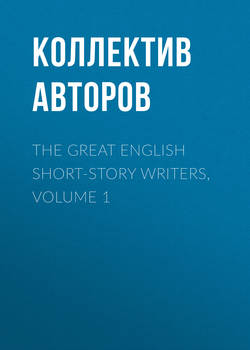Читать книгу The Great English Short-Story Writers, Volume 1 - Коллектив авторов, Ю. Д. Земенков, Koostaja: Ajakiri New Scientist - Страница 3
THE EVOLUTION OF THE SHORT-STORY
III
ОглавлениеFor our purpose, that of tracing the evolution of the English short-story, its history commences with the Gesta Romanorum. At the authorship of this collection of mediaeval tales, many guesses have been made. Nothing is known with certainty; it seems probable, however, judging from the idioms which occur, that it took its present form in England, about the end of the thirteenth or the beginning of the fourteenth century, and thence passed to the Continent. The work is written in Latin, and was evidently compiled by a man in holy orders, for its guiding purpose is to edify. In this we can trace the influence of Aesop's beast-fables, which were moral lessons drawn from the animal creation for the instruction of mankind. Every chapter of the Gesta Romanorum consists of a moral tale; so much so that in many cases the application of the moral is as long as the tale itself.
The title of the collection, The Deeds of the Romans, is scarcely justified; in the main it is a garnering of all the deathless plots and dramatic motives which we find scattered up and down the ages, in the legend and folklore of whatsoever nation. The themes of many of its stories were being told, their characters passing under other names, when Romulus and Remus were suckled by their wolf-mother, before there was a Roman nation or a city named Rome.
In the Bible we have many admirable specimens of the short-story. Jotham's parable of the trees of the wood choosing a king is as good an instance of the nature-fable, touched with fine irony and humor, as could be found. The Hebrew prophet himself was often a story-teller. Thus, when Nathan would bring home the nature of his guilt to David, he does it by a story of the most dramatic character, which loses nothing, and indeed gains all its terrific impact, by being strongly impregnated with moral passion. Many such instances will occur to the student of the Bible. In the absence of a written or printed literature the story-teller had a distinct vocation, as he still has among the peoples of the East. Every visitor to Tangier has seen in the market-place the professional story-teller, surrounded from morn till night with his groups of attentive listeners, whose kindling eyes, whose faces moved by every emotion of wonder, anger, tenderness, and sympathy, whose murmured applause and absorbed silence, are the witnesses and the reward of his art. Through such a scene we recover the atmosphere of the Arabian Nights, and indeed look back into almost limitless antiquity. Possibly, could we follow the story which is thus related, we might discover that this also drew its elemental incidents from sources as old as the times of Jotham and Nathan.
The most that can be said for the Latin origin of the Gesta Romanorum is that the nucleus is made up of extracts, frequently of glaring inaccuracy, from Roman writers and historians. The Cologne edition comprises one hundred and eighty-one chapters, each consisting of a tale or anecdote followed by a moral application, commencing formally with the words, "My beloved, the prince is intended to represent any good Christian," or, "My beloved, the emperor is Christ; the soldier is any sinner." They are not so much short-stories as illustrated homilies. In the literary armory of the lazy parish priest of the fourteenth century, the Gesta Romanorum must have held the place which volumes of sermon-outlines occupy upon the book-shelves of certain of his brethren to-day.
"The method of instructing by fables is a practice of remote antiquity; and has always been attended with very considerable benefit. Its great popularity encouraged the monks to adopt this medium, not only for the sake of illustrating their discourses, but of making a more durable impression upon the minds of their illiterate auditors. An abstract argument, or logical deduction (had they been capable of supplying it), would operate but faintly upon intellects rendered even more obtuse by the rude nature of their customary employments; while, on the other hand, an apposite story would arouse attention and stimulate that blind and unenquiring devotion which is so remarkably characteristic of the Middle Ages."4
4
Introduction to Gesta Romanorum, translated by the Rev. Charles Swan, revised and corrected by Wynnard Hooper, B.A.
